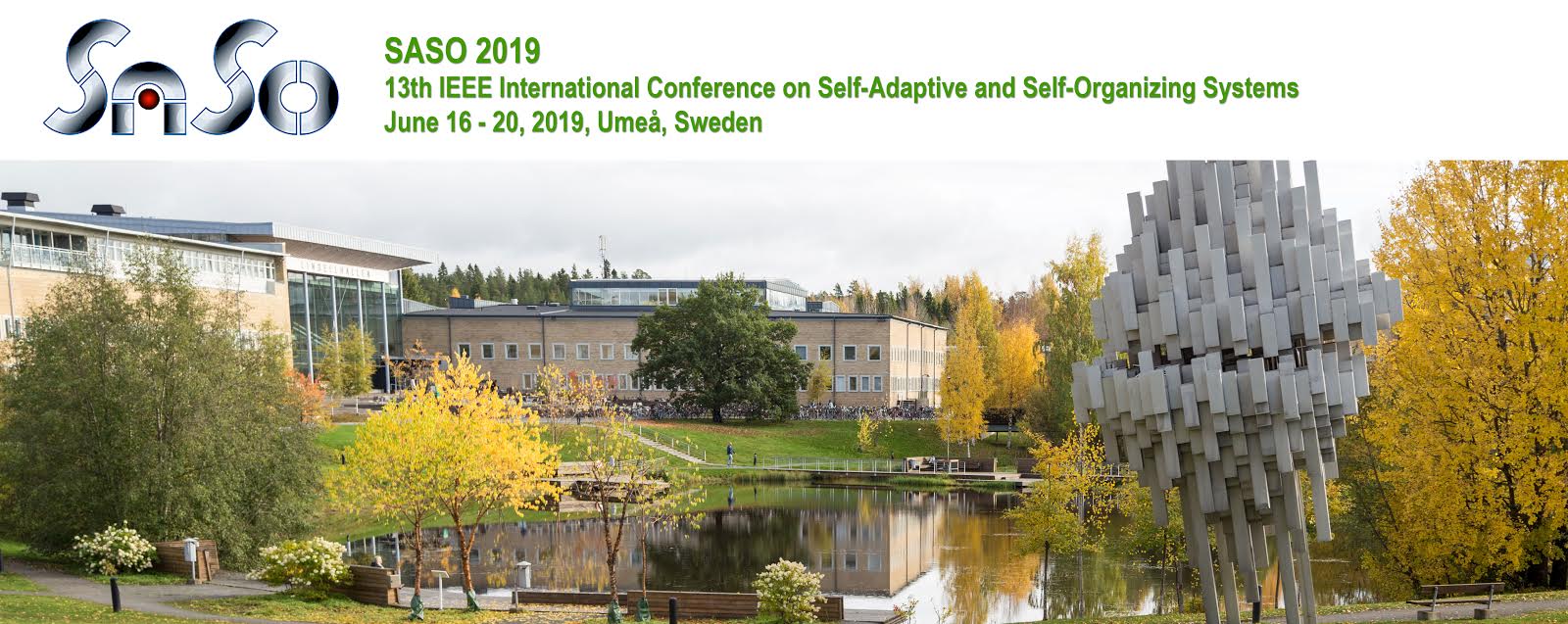Full papers
- Maxime Guériau, Nicolas Cardozo and Ivana Dusparic. Constructivist Approach to State Space Adaptation in Reinforcement Learning
- David King and Gilbert Peterson. The Emergence of Division of Labor in Multi-Agent Systems
- Denise Ratasich, Michael Platzer, Radu Grosu and Ezio Bartocci. Adaptive Fault Detection exploiting Redundancy with Uncertainties in Space and Time
- Abdulmajid Murad, Frank Alexander Kraemer, Kerstin Bach and Gavin Taylor. Autonomous Management of Energy-Harvesting IoT Nodes Using Deep Reinforcement Learning
- Barry Porter and Roberto Vito Rodrigues Filho. Distributed Emergent Software: Assembling, Perceiving and Learning Systems at Scale
- Agata Barcis and Christian Bettstetter. Beyond Sync: Distributed Temporal Coordination and Its Implementation in a Multi-Robot System
- Vladimir Podolskiy, Michael Mayo, Abigail Koay, Michael Gerndt and Panos Patros. Maintaining SLOs of Cloud-native Applications via Self-Adaptive Resource Sharing
- Erick Lavoie, Laurie Hendren, Frederic Desprez and Miguel Correia. Genet: A Quickly Scalable Fat-Tree Overlay for Personal Volunteer Computing using WebRTC
- Erik M. Fredericks, Ilias Gerostathopoulos, Christian Krupitzer and Thomas Vogel. Planning as Optimization: Online Learning of Situations and Optimal Configurations
- Kamal Hakimzadeh and Jim Dowling. Ops-Scale: Elastic Cloud Operations by Declarative Functional Abstraction and Feedback Control Loop
- Chloe M Barnes, Anikó Ekárt and Peter R Lewis. Social Action in Socially Situated Agents
- Lei Fang, Simon Dobson and Juan Ye. Distributed Self-monitoring Sensor Networks via Markov Switching Dynamic Linear Models
Short papers
- Ada Diaconescu, Louisa Jane Di Felice and Patricia Mellodge. Multi-scale Feedbacks for Large-scale Coordination in Self-* Systems
- Bartosz Zurkowski and Krzysztof Zielinski. Towards Self-organizing Cloud Polyglot Database Systems
- Luis Garcia Paucar and Nelly Bencomo. Runtime K Models to Support Trade-offs for Self-adaptation using Partially Observable Markov Decision Processes
- Thomas Brand and Holger Giese. Generic adaptive monitoring based on executed architecture runtime model queries and events – effective and effort-reducing
